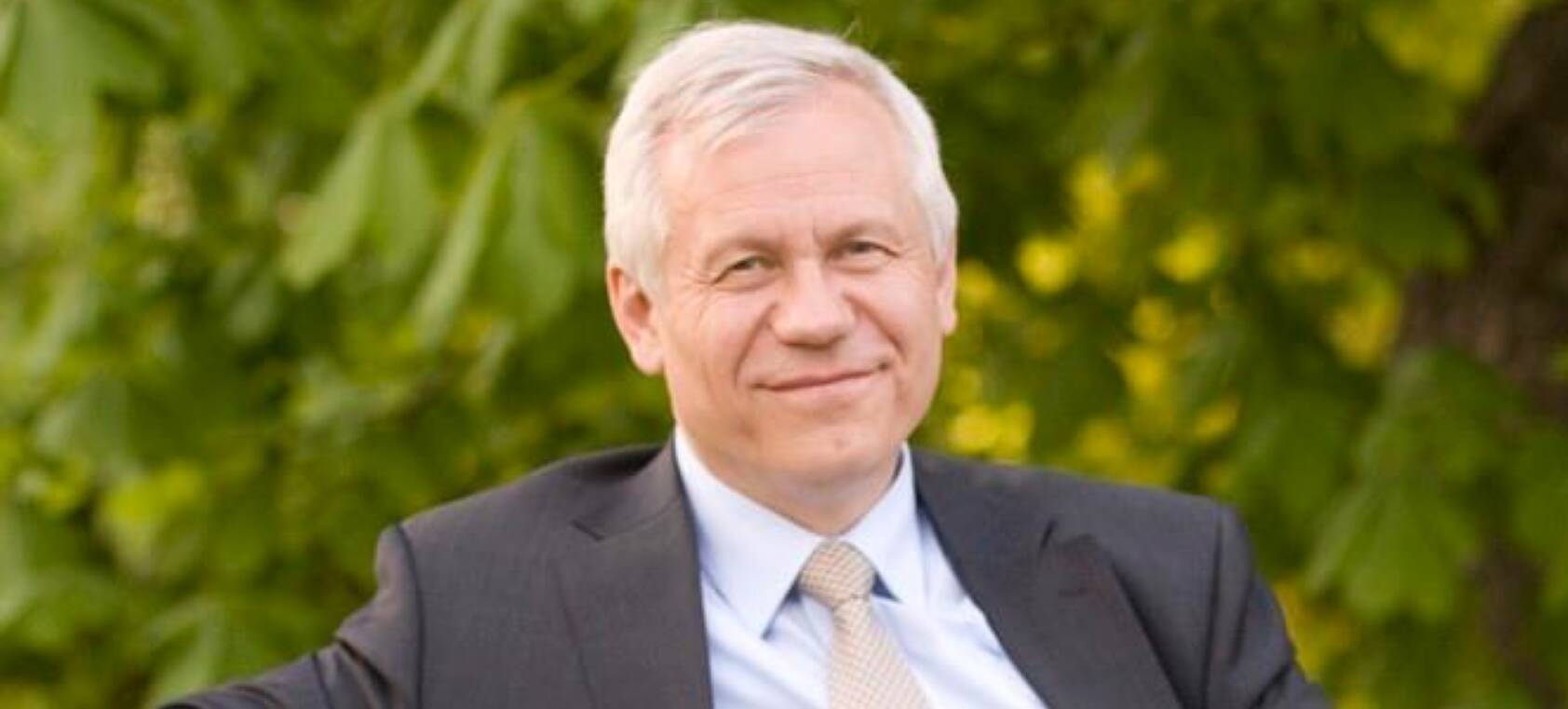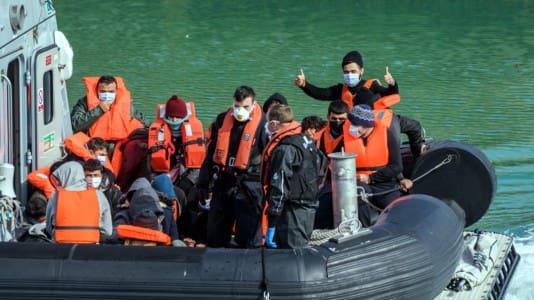Marek Jurek was speaker of the Sejm for PiS in the years 2005-2007, and PiS co-chair in 2002–2007 before leaving the Kaczyński brothers’ party over their refusal to stage a parliamentary vote on amending the Polish constitution to better protect every person’s right to life from conception to natural death. He was leader of the Christian conservative and pro-life party Right of the Republic from 2007-2018 and member of the European Parliament sitting in the PiS group in 2014–2019. In 2015, he was also the initiator of Poland’s Christian Social Congress whose goal is to federate Catholics engaged in public policies.
In June, the Istanbul Convention, which promotes gender ideology and was criticized by the Law and Justice (PiS) party at the time of its ratification in Poland, was ratified by the Ukrainian parliament despite criticism from all churches operating in Ukraine. In an article recently published in the Polish weekly Do Rzeczy, you blame Poland in part for this. Why?
I don’t blame Poland, I blame the European Union, although, of course, I regret that we did not support Ukraine in opposing its pressure.
For 10 years, Ukraine opposed the Istanbul Convention very valiantly. The convention was indeed signed by the Ukrainian government at the beginning of Yanukovych’s pro-Russian presidency, but President Poroshenko did not ratify it nor did President Zelensky until the war broke out.
Christian authorities spoke out strongly and with great public resonance against the Istanbul Convention, in particular those representing the most patriotic Churches, primarily the Greek Catholic Church and the Autocephalous Orthodox Church, of which Metropolitan Epiphanius is the head.
The political authorities accepted the arguments formulated by Ukraine’s Christian opinion until the European Union took advantage, in an exceptionally cynical way, of the drama of an invaded and partially occupied country, devastated by war and in need of aid. This need for aid has been used by the European Union to pressure the Ukrainian authorities to abandon their long-standing policies.
But what role could Poland have played in this?
The Istanbul Convention has not been ratified by almost a quarter of the European Union countries, including half of the Central European ones (Lithuania, Latvia, Slovakia, Hungary, Czechia, and Bulgaria).
Bulgaria’s Constitutional Court ruled that the convention is incompatible with the constitutional rights of the family. The Slovak parliament demanded an official declaration from the Slovak president that Slovakia definitively refuses to ratify this document. And Zuzana Čaputová, willingly or not, had to comply.
Thus, there is a sizable group of countries refusing to ratify this convention. Poland should have joined that group, and I hope we will do so someday.
In our country, the convention was ratified by the liberal government of Ewa Kopacz just before Law and Justice took power. That it raises fundamental constitutional objections is evidenced by the case submitted to the Constitutional Court by Prime Minister Mateusz Morawiecki two years ago.
If only for this reason, our authorities should have supported Ukraine in its opposition to the convention, clearly stating that Ukraine, as a candidate to the EU, has the right to take the same position as Bulgaria or Slovakia, or to have the same doubts as Poland. The fact that so far Poland has not denounced the convention would even have strengthened the argument for respecting the position of countries formally taking a different stance from us.
I don’t know if our support would have resulted in Ukraine resisting EU pressure, but I as a Pole am primarily interested in Poland doing what it can to build a healthy and secure geopolitical environment for our country, and contribute to the promotion of a Europe that respects the foundations of its own civilization.
In addition to denouncing the Istanbul Convention, what do you think Poland should do now that it has been ratified by Ukraine as well, so that this country, if it joins the EU, can nevertheless strengthen the conservative and sovereignist camp in it?
First of all, there is a need to clearly declare the fact that we stand up for Christian civilization.
Let’s remember that there were times in the post-war period when, for example, Éamon de Valera’s Ireland officially said that the leading principle of its international policy was to support the rights of nations and Christian civilization, which is exactly what Poland should say today.
To some extent, we are actually doing that. However, it is also a matter of explicating it and seeking practical forms of realizing the principles of Christian civilization so as to create international facts and international opinion.
The best way of conducting such a policy today would be to present internationally and conclude an international convention on family rights as an alternative to the Istanbul Convention bowing to gender ideology.
A draft of such a document was prepared by the Right of the Republic party (Prawica Rzeczypospolitej) and the Ordo Iuris Institute, and I presented it at a conference in the French National Assembly, in Zagreb, and in the European Parliament, among others. Prime Minister Morawiecki announced two years ago that Poland would prepare and present a draft convention in the same spirit.
This should not be delayed, not least because, first of all, the rights of the family are under brutal attack internationally, but also the states that defend them concretely in their laws need a legal basis and an organizational framework to stand together in the international organizations in which we are, and in which the rights of the family, are under attack.
It is, therefore, necessary to act proactively and not just reactively.
I just wonder if Poland still has any room to maneuver in the ideological field after the Polish government agreed to the so-called rule of law mechanism and, in addition, has now pledged to meet 116 so-called milestones in order to receive the NextGenerationEU funds. After all, we all know that the European Commission’s blackmail is ideologically motivated.
First and foremost, the sphere of fundamental rights should not be treated as an ideological issue because it is not the sphere of ideology. The family is not a postulate, it is the real foundation of society. The right to life is a condition for the enjoyment of all other rights.
Prime Minister Mateusz Morawiecki very rightly said in 2020 that freedom of choice is an important principle, but a person who is not born has no choice.
This should also be emphasized because our opponents, who question the foundations of society, do not say that their position is an ideology, but present it as an obvious expression of “human rights.” If so, a fundamental discussion and confrontation of ideas should be undertaken in this field.
The second thing is that economic blackmail has, unfortunately, become a permanent principle of European Union policy.
This is, of course, a complete negation of the rule of law that the EU talks about. Poland cannot be accused of violating democratic principles and the “values” of the European Union when these allegations, despite the European Commission’s request against Poland, have not been confirmed by the European Council.
The European Council has never launched a preliminary procedure to determine that there was even a threat to these principles. It did not state there was such a threat under either the presidency of Donald Tusk or the current presidency of Charles Michel.
What is happening contradicts the rule of law and shows that European Union policy is increasingly undermining the independence of our region’s countries and their ability to conduct autonomous policies.
This is all the more reason for Central European countries to undertake direct cooperation. So-called enhanced cooperation is one of the institutions provided for by the European treaties, and in the field of family rights or in other areas including infrastructure or foreign policy initiatives, the countries in our region should make use of this treaty-based tool.
This is a necessary condition for restoring balance in the European Union, for its normal operation, and for stopping the destructive madness we see today.
There is a war going on, the borders of some EU countries, especially Poland, Lithuania, Latvia, and Estonia, may be threatened, and yet the European Union is engaged in attacks on its own member countries.
This is all the more disgraceful given that President Macron, in the midst of the ongoing war in Ukraine, appealed not to seek to “humiliate” Russia because it is a great nation. But what about our nation, Poland? Should it be humiliated?
It is time for President Macron and European leaders to say that any controversy between Poland and the European Union authorities cannot end up humiliating our country, because European cooperation cannot be about humiliating any nation.
How do you assess in this context the recent visit to Warsaw of the European Parliament’s Committee on Budgetary Control, whose mission – the first of its kind in its history – was to investigate the spending of EU funds in Poland?
All these actions are part of the pressure put on our country, which is why for many years I have been encouraging our authorities to stand firmly on treaty rights and refuse to agree to any informal actions on the part of the EU. By tacitly legalizing such economic coercion, we agree to make it the EU’s operating principle. We should turn back from this path without delay.
In your opinion, does Polish Prime Minister Mateusz Morawiecki attach enough importance to conservative and Christian values to actually stiffen his stance and risk losing EU funds to defend these values?
This is a change that Catholic public opinion and the institutions representing them have been demanding for years.
Until now, the sphere of fundamental rights, concerning Christian identity, the moral order, family rights, and the right to life, has been treated as cultural issues with no real political consequences. Meanwhile, these rights are negated because there is no real political response. This must change, and that change is still ahead of us.
Our authorities see and understand this reality, but they do not fully draw the necessary conclusions, and it is time to draw them.
A good incentive for this is the recent developments in the United States, with the Supreme Court ruling in Dobbs vs. JWHO, restoring to the states the right to protect life from conception.
This is the result of a long-standing and consistent policy. Of course, this is a great victory and the crowning achievement of Donald Trump’s presidency, as he appointed most of the judges who voted for life, but this would not have been possible if not for the policies of previous presidents and conservatives in the Republican Party.
The ruling was penned by Justice Samuel Alito, who was appointed by George W. Bush. The majority that voted on the ruling included Justice Clarence Thomas, who was appointed by George Bush Senior. While appreciating the merits and key role of President Trump, it is worth noting that he achieved his goals because he was able to reinforce and continue the policies conservatives had been pursuing for years.
This is the opposite of what we see in Europe. The Right (or what used to be the Right) has been steadily retreating, and the EU authorities are getting increasingly radical.
In a July 7 resolution, the European Parliament is no longer just telling Poland or Hungary what to do but is calling on half of the state legislatures in the U.S. to withdraw legislation protecting life.
And this is not just parliamentary rhetoric, as that resolution was supported by the European Commission. Commissioner Helena Dalli made it clear on behalf of the European Commission that first, abortionism is, as she put it, at the heart of the European Union’s values, and second, that the European Union will pursue a multidimensional, global abortion policy.
The word “multidimensional” means here that the EU’s abortion policy combines financial support for the abortion revolution in individual countries, and, of course, support for similar actions by international institutions.
Thus, this is not a theoretical dispute going on in newspapers, scientific conferences, or social congresses. This is a real and political issue of civilizational choice, which requires a political response and therefore concrete initiatives and actions.
That is why it is so important to fulfill Prime Minister Morawiecki’s announcement of a Polish initiative to conclude an International Convention on Family Rights.
Incidentally, when I was at a meeting in the French National Assembly, Louis Alliot, who is currently running for the leadership of Le Pen’s National Rally party (RN), and is, therefore, one of the leaders of the opposition in France, announced that if one day his party takes power, France will adopt the International Convention on the Rights of the Family. Each such declaration is a small step in rebuilding conservative opinion in Europe, but it is from us first and foremost, from Central Europe, that initiatives should come out around which European conservative opinion can unite.






